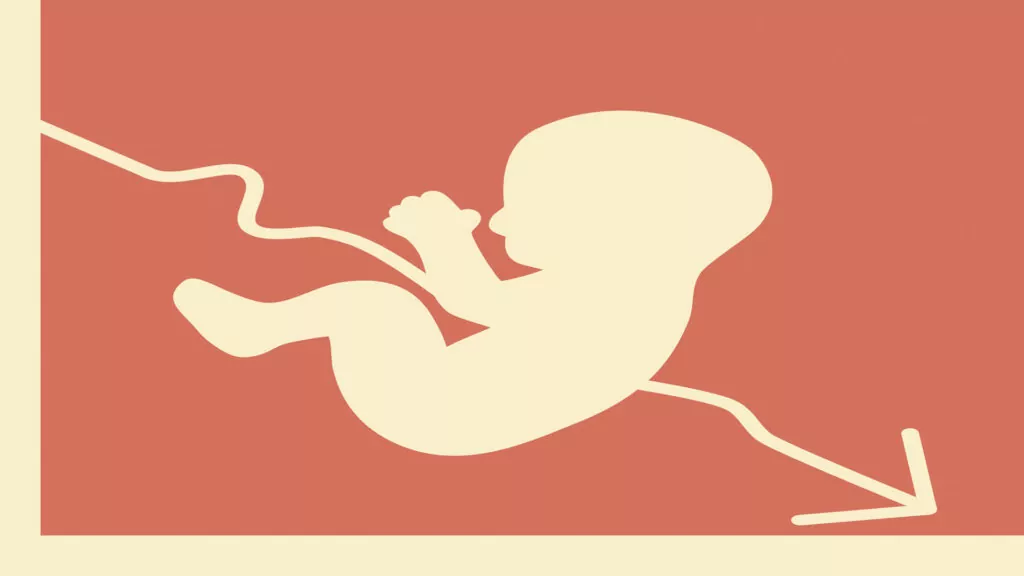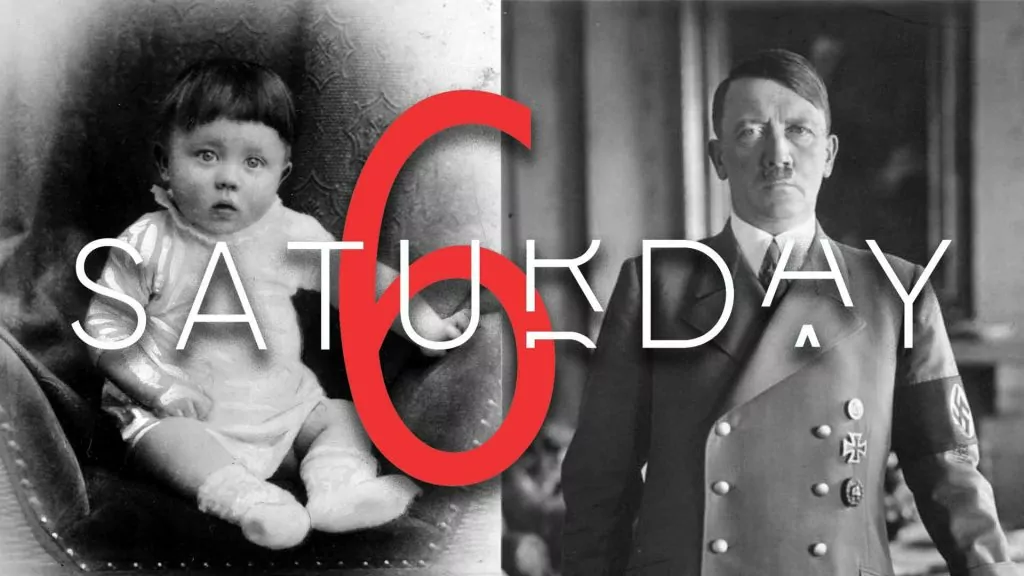How does the world explain the origin of life?
or, highlighting the problems with a Naturalistic explanation
*****
Naturalism can be defined best by what it doesn’t believe: in the Supernatural; it denies the existence of God.
That means that all naturalists are left with to explain all that exists, why we exist, and how we came to be is Nature and natural laws. And that presents them with a problem. Nature cannot provide us with an explanation for abiogenesis – life coming from non-life.
You don’t have to take my word for it – this is also acknowledged as a foundational problem by many scientists, sometimes explicitly, and sometimes only by the irrational arguments they’ll offer as an alternative to acknowledging God.
In what follows I’m going to share both the publicly acknowledged problems with naturalistic abiogenesis, as well as some of the theories the world has proposed to address those problems. Both are revealing.
The RNA problem
In paleontologist Peter Ward’s book Life As We Do Not Know It, he addresses how RNA (or ribonucleic acid) – because it is simpler than DNA (deoxyribonucleic acid) – is theorized as an evolutionary step in the development of DNA. But, Ward notes:
Amazingly, one of the major criticisms of RNA life…the hypothesized last common ancestor of all DNA life, is that it probably did not exist because it would have been impossible to build RNA through natural chemical processes. Paul Davies notes: .… ”without a trained organic chemist on hand to supervise, nature would be struggling to make RNA from a dilute soup under any plausible prebiotic condition.”
Or, as organic chemist Clemens Richert wrote in the Dec 12, 2018 edition of Nature Communications:
Experimentalists in the field of prebiotic chemistry strive to re-enact what may have happened when life arose from inanimate material. How often human intervention was needed to obtain a specific result in their studies is worth reporting.
When Diego Maradona was asked about having used his hand to score a goal in the quarter-finals of the 1986 soccer World Cup, he initially claimed that there had been divine intervention, and the term “Hand of God Goal” was coined. – There had been manual intervention, and there had been an understandable interest of the player not to admit it. – Organic chemists, if not all experimentalists in the field of prebiotic chemistry, are faced with a similar dilemma. We do our best to perform experiments that we believe re-enact possible steps of prebiotic evolution, but we know that we need to intervene manually to obtain meaningful results.
Further, the ideal experiment does not involve any human intervention.
He also frankly said:
Understandably, this has drawn the ire of those who feel that no or only minimal intervention is allowed for a process to be called prebiotically plausible. After all, it is not easy to see what replaced the flasks, pipettes and stir bars of a chemistry lab during prebiotic evolution, let alone the hands of the chemist who performed the manipulations. (And yes, most of us are not comfortable with the idea of divine intervention in this context.)
Whether divine intervention or human intervention, there’s a conscious entity doing the intervening. So even if our friends were to succeed in creating life in the lab, that would only demonstrate that intelligence and deliberate intent are needed to create a living thing. I'm glad this issue is explicitly acknowledged.
Every honest Origin of Life (OOL) researcher will agree fully. It’s one thing for highly trained chemists to create RNA in a lab, but another thing entirely for unaided Nature to accomplish the same. Especially considering that Nature is not trying to make RNA, and has no intention of doing so.
The multiverse “solution”
But, if the researcher is committed to Naturalism and atheism, then he has no choice but to maintain a strong (and unrealistic) faith that Nature did it anyway, even though he knows it’s not possible.
One such researcher, Eugene Koonin, resorted to “an infinite multiverse” as a potential way out of this problem. This is the view that supposedly, anything that can happen will happen in an infinite multiverse, and this would also include the chance origin of life.
In a 2011 book, The Logic of Chance: the Nature and Origin of Biological Evolution, he added this:
The origin of life is one of the hardest problems in all of science, but it is also one of the most important. Origin-of-life research has evolved into a lively, interdisciplinary field, but other scientists often view it with skepticism and even derision. This attitude is understandable and, in a sense, perhaps justified, given the “dirty” rarely mentioned secret: Despite many interesting results to its credit, when judged by the straightforward criterion of reaching (or even approaching) the ultimate goal, the origin of life field is a failure – we still do not have even a plausible coherent model, let alone a validated scenario, for the emergence of life on Earth. Certainly, this is due not to a lack of experimental and theoretical effort, but to the extraordinary intrinsic difficulty and complexity of the problem. A succession of exceedingly unlikely steps is essential for the origin of life, from the synthesis and accumulation of nucleotides to the origin of translation; through the multiplication of probabilities, these make the final outcome seem almost like a miracle.
“Almost like a miracle” is a frank admission of what OOL entails. Nevertheless, in the same book, Koonin continued to cling to the multiverse hypothesis as a guaranteed solution to the problems involved with OOL. Here’s the summary of Koonin’s argument, in his own words:
Simply put, the probability of the realization of any scenario permitted by the conservation laws in an infinite universe (and, of course, in the multiverse) is, exactly, one.... Thus, spontaneous emergence of complex systems that would have to be considered virtually impossible in a finite universe becomes not only possible but inevitable under MWO …
What he’s saying is that if you have an infinite number of universes then anything, no matter how improbable, not only can happen, but will happen… in some universe somewhere within the multiverse. Including naturalistic abiogenesis.
According to Koonin (and some “Many Worlds” physicists who agree with him), in some universe somewhere right now, there’s a guy who’s a practicing neurosurgeon, a janitor, and the lead actor in a recent blockbuster movie – simultaneously. He owns 271 cars, and is married to his high school sweetheart (who happens to be a princess from a tribe of highly-advanced super-beings). Their son adopted a pet chimpanzee named Wilson, while their twin daughters are ballistic missile experts in the local galactic army.
No, this isn’t a hypothetical story I just made up. Or, rather it is, but according to Koonin’s logic these things are actually going on right now as we speak, in some universe somewhere. The pet chimp is also very clever, and has learned how to fly a helicopter, among other things.
Now think about this trained monkey trying to synthesize life in a chemistry lab. What are the odds of him succeeding?? Exactly. But even the monkey has a better chance than a prebiotic Nature which has no intent or purpose whatsoever.
In any case, simply postulating an infinite multiverse in an attempt to overcome the problem does not help – Koonin doesn’t put forth any mechanism whereby life could be naturally synthesized, but just makes the bold assertion that it must certainly happen given a multiverse.
Time is no solution
Another factor that is usually seen as a possible helper for abiogenesis is Time. If Nature has billions of years to work with, she should be able to eventually get the right combination to the safe, right?
No, not at all. That would be akin to claiming a blind engineer could invent a BMW, or a Model-T Ford, given billions of years to live and try. It’s clear why time isn’t the problem. The blind engineer actually has better odds in this analogy than Nature does, since he at least knows what he’s attempting to accomplish.
The language/information problem
The origin of life gets all the more complicated when we realize it also necessitates the origin of information, and the origin of a language to convey that information. I could employ many quotes here concerning what information is, but I like how physicist and information theorist Hubert Yockey put it in this simple statement:
The meaning, if any, of words, that is, a sequence of letters, is arbitrary. It is determined by the natural language and is not a property of the letters or their arrangement ... For example, "O singe fort!" has no meaning as a sentence in English, although each is an English word, yet in German it means, "O sing on!" and in French it means "O strong monkey". Like all messages, the life message is non-material but has an information content measurable in bits and bytes.
Or, as chemistry professor Michael Polanyi already noted way back in 1958, in his book Personal Knowledge:
Information in the DNA could no more be reduced to the chemicals than could the ideas in a book be reduced to the ink and paper: something beyond physics and chemistry is encoded in DNA.
The origin of encoded genetic information is also assumed to have just happened miraculously under the multiverse scenario. Information here isn’t just the physical nucleobases, or even their sophisticated ordering alone, but the ribosomes’ understanding of the language, and their ability to decode and use those instructions to build the specified proteins. And then we have multiple regulatory genes in addition, which are all information networks.
There’s actually a $10 million challenge out there still ongoing, for anyone who can demonstrate a set of coded information that didn’t originate from a mind, i.e., that can be spontaneously generated by Nature. The judges include well-respected biologists George Church and Denis Noble, and the Royal Society has also gotten involved recently. No one has claimed the prize (find out more in the 2 minute video below).
The complexity problem
Most of us don’t actually know, much less appreciate, the number of things that need to be done in order to arrive at the “simplest” cell. Nature has no goal or aim or plan to create a cell. The fact that highly trained, highly intelligent chemists still can’t do it, speaks volumes.
So how is it that some lay naturalists and even some with degrees think all that’s needed is lots of time, and then Nature will eventually produce a living cell? The sheer amount of intellectual effort that goes into OOL research is more than impressive, and we still can’t make life ourselves – we can’t pull it off. But a mindless prebiotic Nature with no intention of creating a cell somehow did?
Consider the ingredients needed to make a basic candy. Here’s the list for Skittles:
Sugar
Corn syrup
Hydrogenated palm kernel oil
Citric acid
Tapioca dextrin
Modified corn starch
Natural and artificial flavors
Colors (Red 40 Lake, Titanium Dioxide, Red 40, Yellow 5 Lake, Yellow 5, Yellow 6 Lake, Yellow 6, Blue 2 Lake, Blue 1, Blue 1 Lake)
Sodium citrate
Carnauba wax
Now consider just a miniscule piece of a Skittle. Would Nature alone be able to synthesize and assemble the ingredients needed to make a tiny piece of a Skittle? No. Never. Not in ten billion years! But many adults believe Nature somehow synthesized and assembled everything that’s needed to make a living, metabolizing, self-replicating cell.
The extraterrestrials “solution”
But what if we were to claim that life on earth resulted from panspermia – that Extraterrestrials (ETs) seeded the first life on Earth? This is indeed what some among our SETI (Search for Extraterrestrial Intelligence) friends propose.
Well, then they’d have the problem of explaining how Nature produced those ETs. As Richard Dawkins wrote in The God Delusion:
…there are very probably alien civilizations that are superhuman, to the point of being god-like in ways that exceed anything a theologian could possibly imagine. Their technical achievements would seem as supernatural to us as ours would seem to a Dark Age peasant transported to the twenty-first century…In what sense would they be superhuman but not supernatural? In a very important sense…the crucial difference between gods and god-like extraterrestrials lies not in their properties but in their provenance. Entities that are complex enough to be intelligent are products of an evolutionary process. No matter how god-like they may seem when we encounter them, they didn’t start that way…They probably owe their existence to a (perhaps unfamiliar) version of Darwinian evolution.
Saying ETs put the first life on Earth still keeps us inside the box of Naturalism. And then Nature still has to create and evolve the ETs, so the abiogenesis problem – how life can ever have come from non-life – remains.
Then there’s at least one scientist in peer-reviewed publication who also thinks panspermia by ETs isn’t a good enough proposal. Brig Klyce concedes there’s one of two possibilities:
“supernatural intervention or intelligence” (aka God)
or that cellular life has existed from eternity
This concession appeared in a paper (“Cause of Cambrian Explosion – Terrestrial or Cosmic?” in the August 2018 edition of the journal Progress in Biophysics and Molecular Biology) that Klyce co-authored with more than a dozen other scientists. He believed “that the complexity and sophistication of life cannot originate (from non-biological) matter under any scenario, over any expanse of space and time, however vast.” But if that’s so, then how is life here? Rejecting the possibility that God was involved, Klyce then proposes this:
A strictly scientific way around this dilemma would be to amend or tweak the big bang theory to allow for life from the eternal past. After all, the big bang theory is relatively new and still occasionally amended. Therefore, it seems unready to forever overrule the unviolated principle and consistent evidence that life comes from life.
Yes, that’s an actual suggestion from a peer-reviewed secular scientific paper – that life started here from a universe before the big bang. So either God did it, or self-replicating microbes have always existed. The difference between the two proposals is that:
God is an eternal Supernatural This is logically consistent and plausible, and even a metaphysical necessity to avoid an infinite regress of causes.
On the other hand, proposing an eternity of replicating microbes, each of which had a beginning and an end, is trying to say that abiogenesis never happened because there was no “first ever microbe.” But things that have a beginning still need to have an explanation for that beginning. Trying to hide that behind an infinite regression isn’t an answer to this problem.
Conclusion
For decades, highly trained experts have been striving to create life from scratch, using the raw materials found in nature. They have yet to succeed.
Even if they did eventually succeed somehow, that would only demonstrate that a high level of intelligent input is needed to create biological life; which is what we’ve been saying the evidence has always shown. Proposing an infinite multiverse where “anything that can happen will happen” is an unsubstantiated assertion with no empirical evidence whatsoever, and doesn’t offer a mechanism for abiogenesis or even address the issue that Nature has no intent to create life. The suggestion that microbial life has always existed and self-replicated is a logical absurdity, since there can be no such thing as an infinite regress of causes.
Thus in the question of God vs Naturalism, there is no question as to which answer is absurd.
Kenechi Okoli is a Christian who loves science, and in his free time he enjoys reading, music, and cooking. While he lived for over a decade in the US, he now resides in Nigeria....































